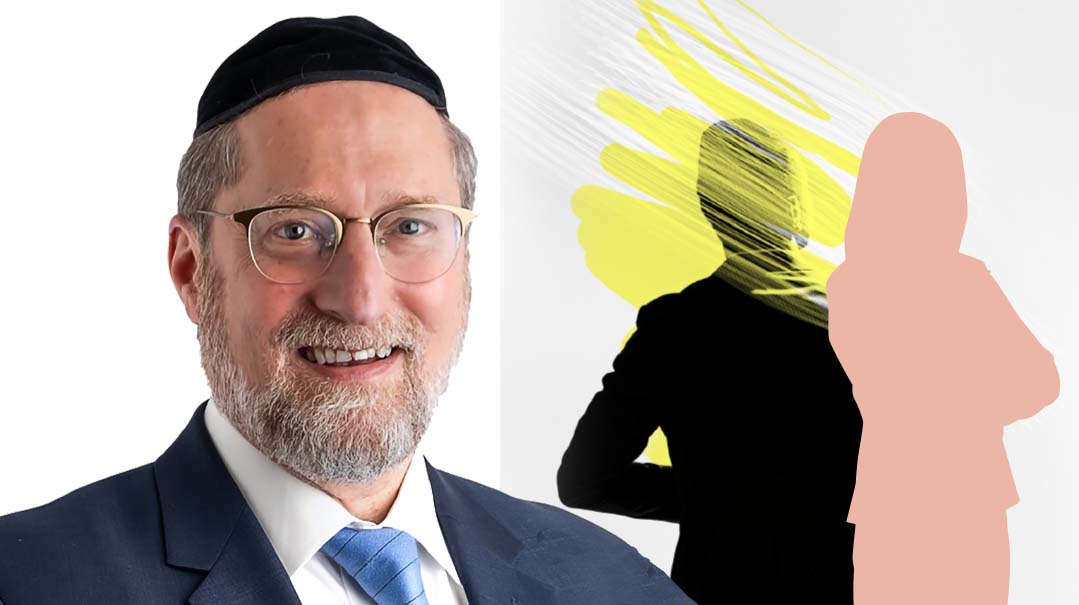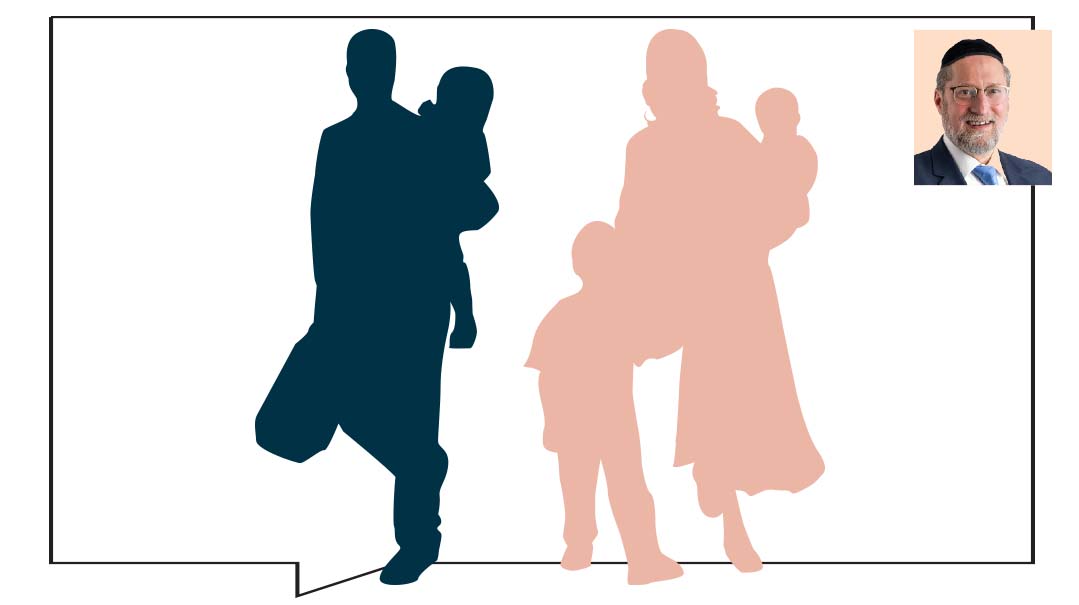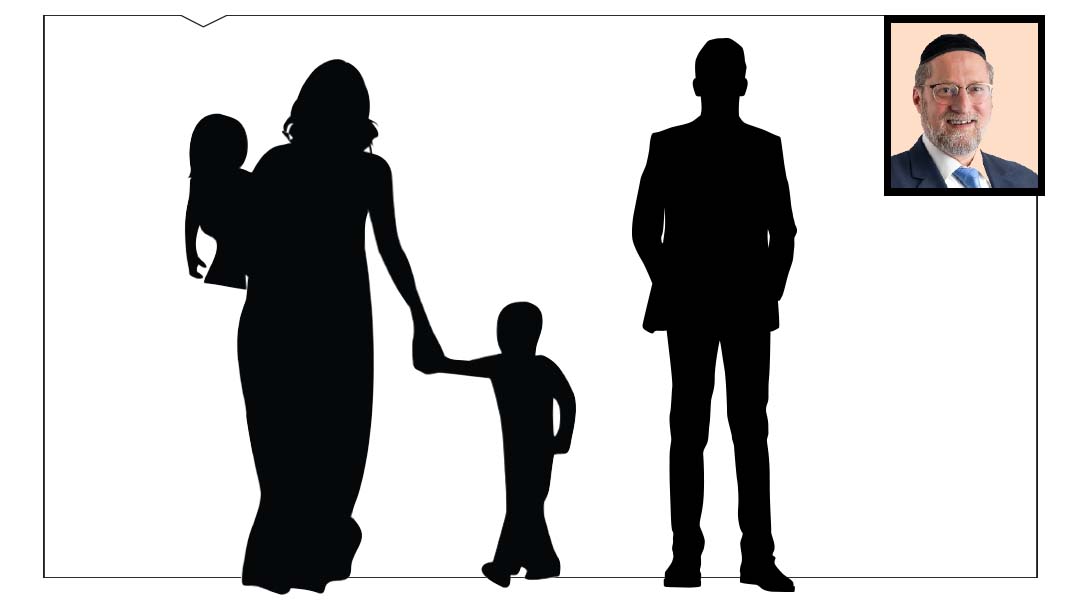Your Map to a Better Marriage: Part 1

Marriage takes work. A good marriage takes a good amount of work. A great marriage takes a great amount of work

Written with Zivia Reischer
Introducing...
Rabbi Ben Tzion Shafier
In short
I’m a talmid of the Chofetz Chaim Yeshivah system and was a rebbi for high school bochurim for 15 years. At the request of the Rosh Yeshivah, Rav Henoch Leibowitz ztz”l, I’ve been saying the Shmuz (a hybrid traditional mussar shmuz and inspirational seminar) for about 20 years so far.
So you’re going to reveal the secret to a successful marriage?
It’s not a secret. What I’m going to share is an exploration of some of the most common issues couples struggle with. And yes, if a couple works on their marriage and implements these ideas, that will lead them to a happy, strong, fulfilling, and successful marriage.
How did a high school rebbi become a marriage counselor?
The Rosh Yeshivah had a vision to create an organization that would be an anchor for young working men who didn’t necessarily have a connection to a shul, yeshivah, or rav once their full-time yeshivah years ended. He asked me to start this organization. I began by giving the Shmuz, which was lightning rod to brings guys into the program. I found that since I was the “rebbi” in the lives of the Shmuz members, they naturally turned to me with their questions. As more members got married, their questions grew more complex, and I found myself learning everything I could about marriage and relationships in order to guide them.
What’s the aim of your new column?
With time and experience I started to notice that couples often do things that cause a lot of damage to their marriage without even realizing it. Once they see the negative impact, that understanding alone is often enough to spur a huge improvement in their relationship. They just need the information. My goal is to bring you that information.
What this column is:
This column will address some common scenarios and some common mistakes that even very smart couples fall into. The saddest part is they don’t even realize what they’re doing until someone points it out to them. That’s what I want to share — some of the most common mistakes that couples make, how to avoid them, and the tools we can all use to create strong, close, and happy marriages.
What this column isn’t:
This column isn’t a substitute for all the hard work that goes into making a marriage be what it should be — and what it could be. That’s totally up to you.
Marriage is the closest of all human relationships. It’s also the most rewarding of all relationships. It’s where you grow together as a couple, and grow into your best self. You want a marriage that’s strong, close, loving and fulfilling. Just reading this column is not going to be enough. Marriage takes work. A good marriage takes a good amount of work. A great marriage takes a great amount of work. But it is achievable. Your match was made in heaven — now it’s up to you to make the marriage.
Q
Rabbi Shafier,
I love listening to your shalom bayis lectures and I hope you can help me. I’ve been married for just over a year. My husband is a tzaddik. He has beautiful middos and controls himself from getting upset. He’s very patient, forgiving, and generous. He works hard to avoid machlokes. I know that I’m lucky to be married to such a wonderful person.
But there’s something that always nags at me and is making me unhappy.
I know it will sound funny for me to say this, but I’m very smart. And I value intelligence in others. I always wanted a husband who was really smart. That’s what I respect. But my husband is just not as smart as me.
I know there are different types of intelligence and that people can be smart in different areas, but I just feel like overall he is just slower and a little spaced out. He doesn’t problem-solve well — not for technical things, and not for things in our relationship. He can’t seem to get a grip on the bills or taxes or health insurance. I try to give him opportunities and let him take the lead, but he just can’t seem to manage it. He’s not so sharp in learning either, he needs to review things many times, otherwise it’s as if he never heard it. Sometimes he says things that just make no sense — he can’t explain things clearly.
I know this is not his problem. It’s my problem. It’s only because I personally value intelligence so much that it bothers me. It’s not fair to him.
I want to be a good wife, but I don’t know how to get out of this problem.
A
Although this particular email came in several years ago, I get this question in some form or other probably once a week. This woman feels disappointed that her husband is not smart; sometimes it’s a man who’s embarrassed that his wife is a slob, or someone who wishes they had married someone wealthier/calmer/more successful. These people are secretly wondering, did I make a mistake when I married this person?
They did make a mistake, but not the one they think.
I replied:
I don’t know you, and I don’t know your husband, so I’m not in a position to evaluate your claim that he isn’t as smart as you. But before I tell you what I think, I want to draw your attention to two points that you yourself made.
First, that you are blessed to be married to a baal middos. I’ve counseled many women who are married to brilliant men and hate them — middos will make him a good husband and a good father, and that’s the main thing.
Second, you are right that there are many different kinds of intelligence. There are people who are brilliant in one area and totally incompetent in other areas. We have men in yeshivah who are literally brilliant in learning but cannot find their way out of the beis medrash. In general, women have stronger intelligence than men in the areas you mentioned — relationships and technical matters.
In fact, I’m probably not as sympathetic right now as I should be, because my wife has always been much sharper in these areas than I am. I can’t manage the paperwork or the finances, my wife always handled it. The odd part is that I feel these things should be the husband’s domain, yet whenever I tried to get involved, I made a mess of it. Women often have a certain capacity in running a home that men don’t necessarily have. And especially when it comes to relationships, they are far more attuned. So it doesn’t surprise me that you find yourself with greater aptitude in these areas. These are but a few measures of intelligence; there are many others that are equally or more significant. Perhaps identifying his particular areas of intelligence would help you respect him.
But let’s even grant that overall you are more intelligent. And let’s even say you’re right that he’s not smart. Therefore, what?
Intelligence is something that is given to a person by Hashem. Before we are born, Hashem determines exactly what our life circumstances will be. Included in that is our strength, health, temperament, nature, and intelligence. But that isn’t the measure of the person — that is the starting point. When you’re done with your job on this earth, the question they will ask is how much you accomplished with the tools you were given. They won’t ask you how smart you were, how tall, attractive, or even how clever you were. They ask how much of you did you become.
There are many highly intelligent people who are lousy human beings. In terms of being a husband, a father, and an eved Hashem, middos go a lot further in defining who the person is. If you want to respect your husband, it might be more effective to broaden your parameters.
But the bigger picture is to accept is that you did not choose your husband. Hashem chose him for you. Out of every possible prospect in the entire world, Hashem determined that this person is the perfect match for you. Hashem knows you far better than you know you, and Hashem knows far better than you what is for your best. In His infinite wisdom, He determined that this is the ideal spouse for you. When you focus on the issue from this perspective, I think you’ll find it much easier to accept your husband for who he is.
You write that your disappointment nags at you and makes you unhappy. Those thoughts are a trick of the Satan. He wants you to be miserable and resentful. He doesn’t want your marriage to reach its potential. Whenever that notion pops up, try to replace it with another thought: “Hashem runs the world. Hashem knows better than I what is for my best. He alone made my shidduch. We are a perfect match.”
One of the keys to success in life, and an enormous part of our avodas Hashem, is learning to control our thoughts. The Ibn Ezra writes that most mitzvos are l’yosher lev ha’adam — to straighten out our thinking. Try to treat this thought as something you’re not allowed to think. As soon as it comes into your brain, change the song: “I accept that Hashem found the best one for me.”
The Mistake: Thinking “I could have done better”
This woman was married for only a year, but she was making a mistake. It’s not a mistake that only newlyweds make — and it’s not the only mistake married couples make. This woman, and others with similar questions, are making one of the Ten Really Dumb Mistakes That Very Smart Couples Make: thinking “I could have done better.”
I’m smart — I could have gotten someone smarter than him.
That other girl I dated was always so positive and upbeat.
If I had married so-and-so, I wouldn’t have to go through this.
The simple reality is that you might be right. It’s quite possible that you could have married someone smarter, richer, or more talented. Hashem doesn’t handcuff us to any particular outcome — that’s what bechirah is all about. The question is, would you have been happier? Would your life in fact have been better? Are you better than Hashem at deciding what you need?
When you internalize that Hashem chose this person to be your spouse, and through the circumstances of life, Hashem brought you two together because you’re perfectly matched, you’ll know there is no way you could have “done better.” Hashem was your shadchan; He knows you completely, knows your spouse completely, and knows that the two of you are exactly the perfect match for the tafkid He put you into this world for.
When you got engaged, how long did you plan to be married for? A year? Ten years? I hope the answer is, for the rest of your life. Are you equipped to choose a partner for the rest of your life? Do you have enough information about the future to make an educated decision? Do you know who you will be in 20 years? Do you know what will matter to you when you are 50 or 60 years old? Of course not. You, and your husband, and in fact anyone you might have had the opportunity to marry, are works in progress, subject to change by choice or by circumstances. You can’t predict where life will take you or who your spouse will become. Choosing a lifelong partner is way above your pay grade.
The only way to make such a choice is by trusting Hashem. He knows you, and your husband, and the future. He chose the ideal partner for you.
In order to successfully weather the ups and downs of married life, you need a pretty intense commitment to the marriage. Where does that commitment come from? It’s not from the “decision” that you made to marry this person. The commitment comes from the belief and acceptance that Hashem chose this person for you. Hashem is perfect, everything He does is perfect, and He gave you the partner that is perfect for you.
Focusing on that thought over and over will help you accept and value your husband, and avoid the first of the Ten Really Dumb Mistakes That Very Smart Couples Make.
Note: This column is intended to offer an understanding of the mechanics of a good marriage. In situations of chronic abuse, a qualified professional should be consulted.
(Originally featured in Mishpacha, Issue 878)
Oops! We could not locate your form.







